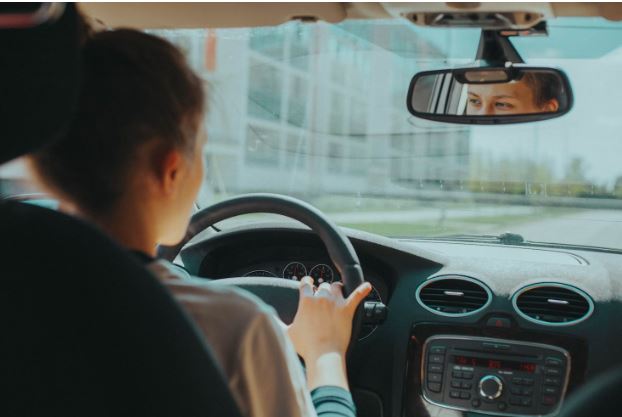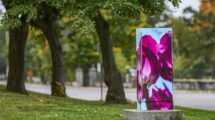Car collisions can be a traumatic and overwhelming experience, leaving you feeling shaken and confused. Amid all this chaos, it’s easy to make costly mistakes that could affect your health, finances, and legal rights.
That’s why it’s crucial to know what steps to take after a car collision. Whether you’re a seasoned driver or a newbie on the road, this article will provide valuable tips on avoiding mistakes and taking the right actions when faced with an accident. So buckle up, and let’s dive in!

Consider Seeking Legal Advice, If Necessary
Seeking legal advice may not be the first thing that comes to mind. However, it can be important in certain situations. If you or anyone involved in the accident has sustained injuries or there is significant property damage, consulting with an attorney can help protect your rights and ensure fair compensation.
It’s also crucial to seek legal advice if the fault is disputed or unclear. Insurance companies may try to deny claims or offer low settlements in these cases, leaving you with heavy financial burdens. An experienced car accident lawyer can investigate the circumstances surrounding the collision and gather evidence to prove liability. Another reason to consider seeking legal counsel is if there are multiple parties involved.
Sorting out who is responsible for damages can quickly become complicated and confusing without professional guidance.
Remember that many attorneys offer free consultations, so there’s no harm in exploring your options even if you ultimately decide not to pursue legal action. In any case, a basic understanding of your rights and responsibilities after a car collision is essential for protecting yourself and making informed decisions.
Stay Calm and Assess the Situation
It’s normal to feel scared and disoriented, however, staying calm is essential to assess the situation properly and avoid making mistakes that could further aggravate the situation.
Take a few deep breaths and try to evaluate your surroundings. Are you on a busy road? Is there any danger of fire or explosion? If possible, move your vehicle out of harm’s way and turn on your hazard lights.
Check yourself for injuries before attending to others involved in the accident. Even if you don’t feel any pain immediately after the impact, some symptoms may appear later on. Observe if you have any cuts, bruises, or discomfort anywhere in your body.
Assess the damage done to both vehicles involved in the collision. Take note of their position relative to each other and any objects surrounding them (e.g., trees, fences). This information can be useful when reporting the incident to authorities.
If it’s safe enough for you to get out of your car without causing more harm than good, gather as much visual evidence as possible using a camera or smartphone. Take photos of both cars from different angles and try capturing images with contextual background elements such as landmarks or traffic signs.
Move to a Safe Location, If Possible
Your number one concern should be making sure that everyone is safe. If there are no injuries and the cars can move, then try to pull over to the side of the road or into a nearby parking lot.
By moving your vehicles out of harm’s way, you reduce the risk of causing another accident or blocking traffic. This will also allow you to assess damages without worrying about other drivers on the road.
However, if there are any injuries or it is unsafe to move your vehicle due to damage or hazards like broken glass on the ground, don’t attempt to do so and wait for emergency responders instead.
Remember: safety comes first after an accident. So take care not only of yourself but also those around you by moving away from danger as quickly as possible while still being mindful and cautious in doing so.
Check for Injuries and Call for Medical Help
It’s essential to check yourself and any passengers for injuries. Even if you feel fine at first, some injuries may not become apparent until hours or even days later. If anyone is hurt, call for medical help immediately.
If someone is unconscious or appears to have a serious injury, avoid moving them unless there is an immediate danger like fire or flooding. Wait for medical professionals to arrive on the scene as they are trained in handling emergencies.
Even minor injuries should be documented by seeking medical attention right away. This can help ensure that you receive proper treatment and also create an official record of your injuries which can be helpful if you need to file an insurance claim or take legal action.
In addition to physical injuries, it’s important to address any emotional trauma resulting from the accident. Shock and anxiety are common after experiencing a car collision, so don’t hesitate to seek mental health support if needed.

Contact the Police and Report the Accident
Even if there are no injuries or significant damage, reporting the accident is crucial for insurance claims and legal purposes. When contacting the police, provide them with your name, phone number, location of the accident, and brief details about what happened. It’s also important to mention if anyone is injured so they can dispatch an ambulance as well.
The presence of a police officer at the scene ensures that everything stays under control and helps prevent any potential conflicts between parties involved in an accident. The officer will create a detailed report documenting all aspects of what occurred during the collision.
This report will be useful for both drivers when filing insurance claims or taking legal action against each other. It’s essential to remember that you should never admit fault or apologize at this time as it could impact your chances of getting compensation later on.
Gather Important Information
This will help you in your insurance claim and potential legal proceedings. Make sure to get the following details from all parties involved:
- Personal Information: Get their name, contact number, address, email address, and driver’s license number.
- Insurance Details: Collect information about their insurance provider including the policy number and phone number.
- Vehicle Information: Take note of the vehicle’s make, model, year, and license plate number.
- Witnesses: If there are any witnesses present at the scene of the accident, obtain their names and contact numbers as well.
It’s also essential to take photos of all vehicles involved in the accident along with any visible damage. Keep in mind that it is not recommended to apologize or admit fault as this can be used against you later on.
Being involved in a car collision can be a traumatic experience for anyone. However, taking the right steps immediately after the accident can help you avoid costly mistakes that could affect your health and financial well-being.
Remember to stay calm and assess the situation before moving to a safe location if possible. Check yourself and others for injuries, call medical help if necessary, then contact the police and report the accident as soon as possible.
Gathering important information such as names, phone numbers, and license plate numbers of all parties involved should also be done at this time. Consider seeking legal advice if needed to ensure that you are appropriately compensated for any damages or injuries sustained from the collision.
Following these tips we have shared with you today in this article about what to do after a car collision; will not only protect yourself but also other people on the road from facing similar situations in the future.






